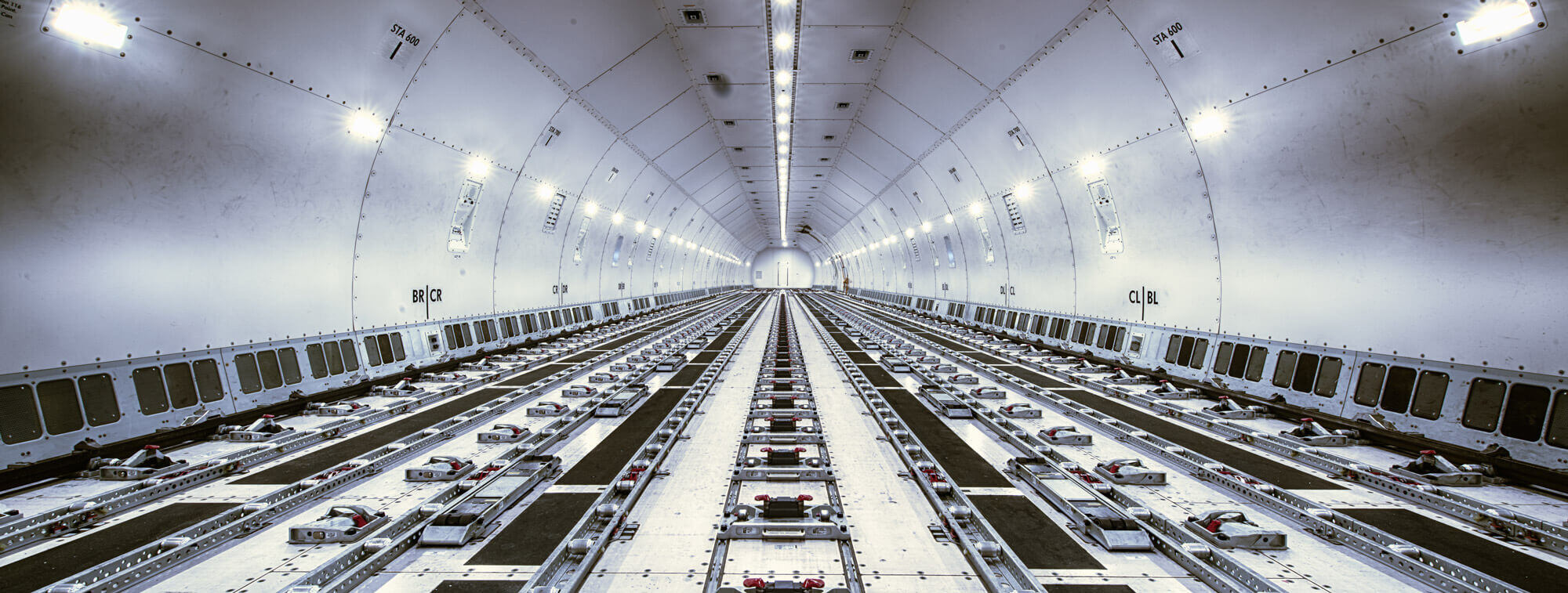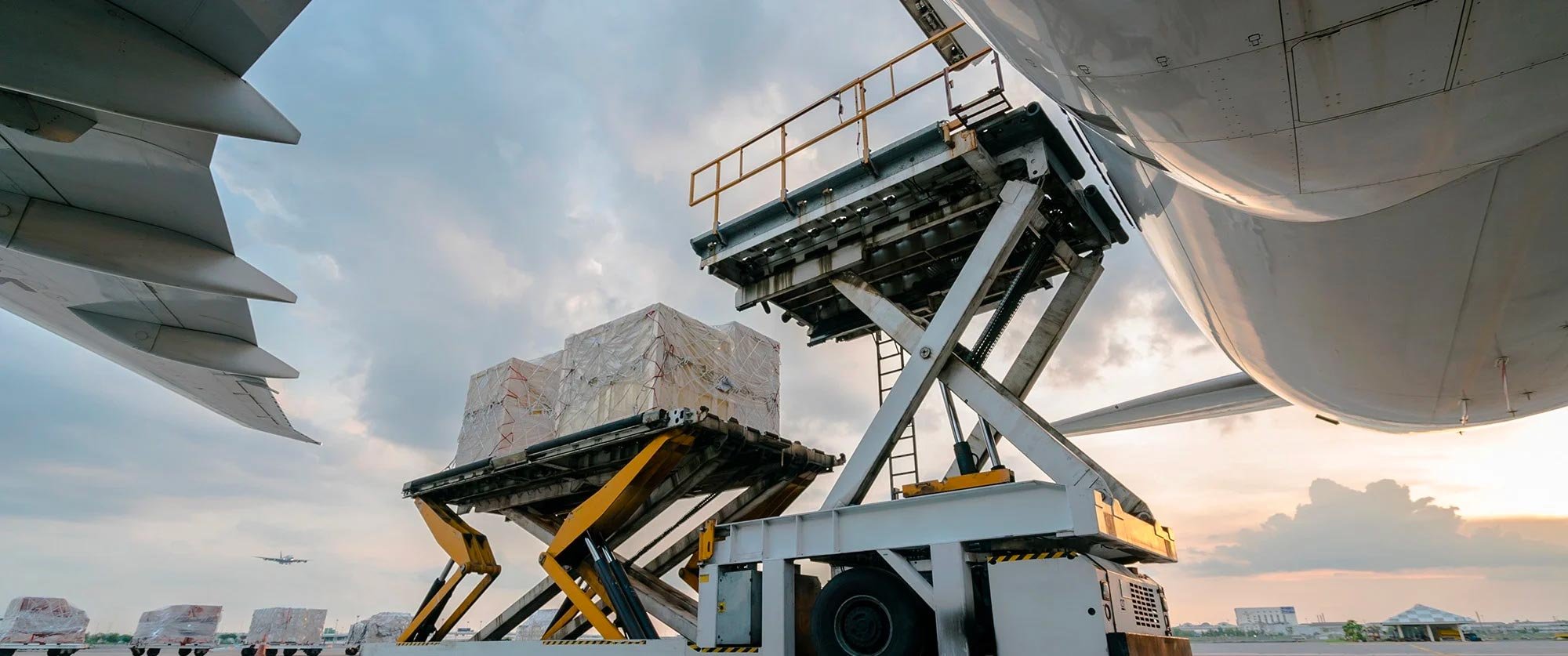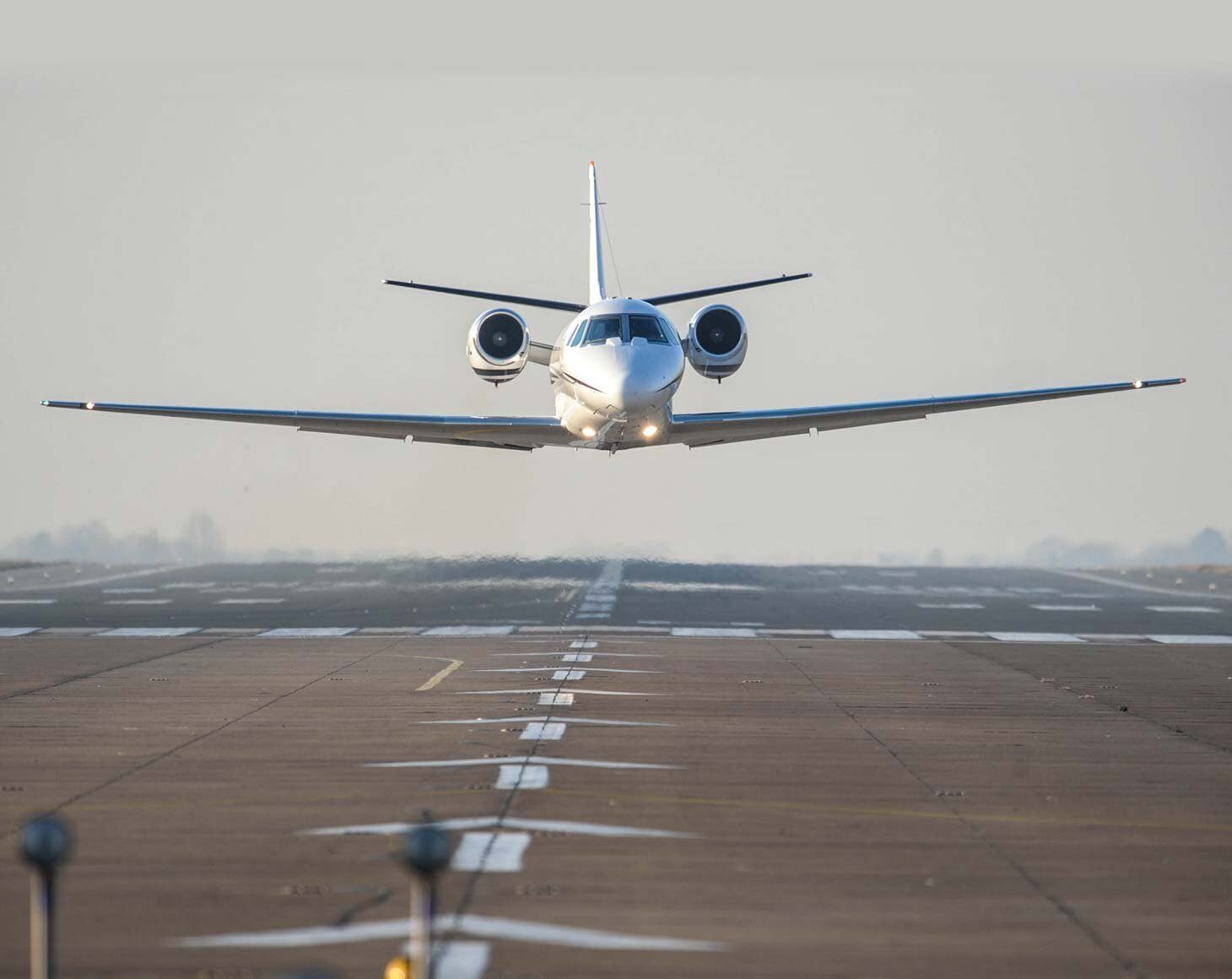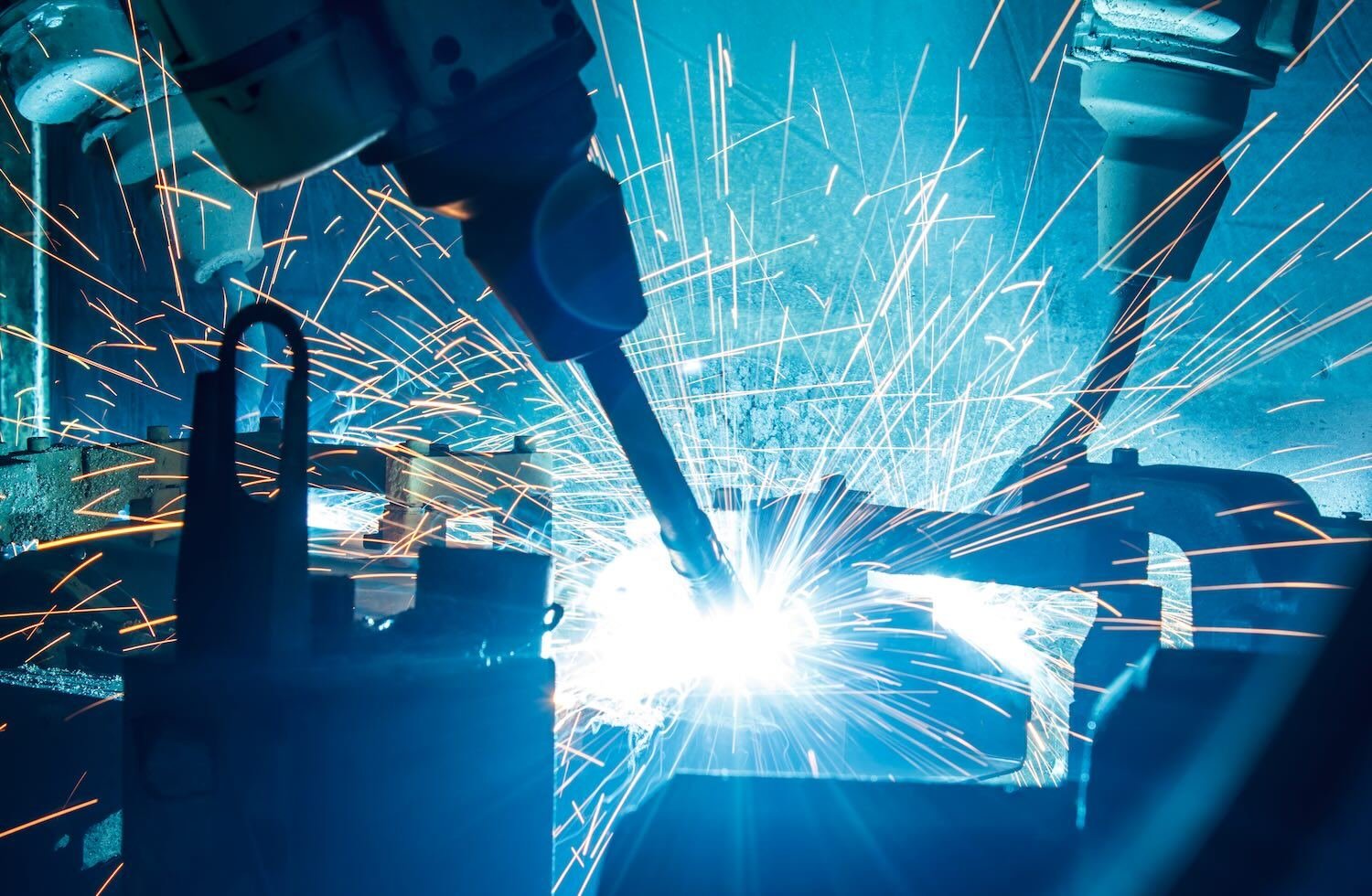In the automotive sector, timing is everything. A single missing part can idle a production line, costing thousands of dollars per minute in lost productivity. To avoid such costly downtime, automakers and suppliers are increasingly turning to dedicated air charter services for urgent shipments.
These on-demand charter flights – ranging from cargo jets to small private jets repurposed for freight – provide unparalleled speed and flexibility, ensuring that critical components arrive in hours rather than days. In recent years of supply chain disruptions, air charter freight has proven to be a vital lifeline for manufacturers, often the only way to keep just-in-time production on schedule. North America in particular has seen a boom in air charter use for automotive logistics, thanks to its sprawling supply chain and just-in-time manufacturing model. In fact, North America accounts for over 40% of the global air charter services market.
Major car manufacturers in the U.S., Canada, and Mexico have embraced chartered air service as a strategic tool, leveraging it to move parts across borders overnight or to rush in materials when conventional shipping would be too slow. The appeal is clear: a charter airplane can be deployed 24/7 on short notice, flying direct to the needed destination and bypassing delays. This combination of rapid transit and on-demand scheduling makes air charter shipping an indispensable component of modern automotive logistics, providing the speed and agility that today’s complex supply chains require.
WHAT IS AIR CARGO CHARTER?
Air cargo charter is a tailored air freight solution designed for maximum flexibility, speed, and control. Unlike traditional scheduled air freight, air charter services provide exclusive use of a dedicated charter airplane, allowing shippers to bypass commercial timetables and fly directly to their chosen destination. This on-demand model is ideal for companies facing time-sensitive logistics challenges or transporting freight that cannot be accommodated by standard carriers. Whether it’s a small jet aircraft for a regional run or a wide-body charter plane for international transport, air charter freight ensures precision and priority delivery.
This specialized air freight service is frequently used for urgent, oversized, or high-value cargo that requires direct routing and secure handling. Charter flights can be scheduled within hours, with routes customized to minimize ground transfers and reduce overall transit time. For industries like oil and gas, aerospace, and automotive, air charter shipping is essential when conventional shipping options can’t meet operational demands. From heavy equipment to hazardous materials, charter airlines are equipped to move complex freight with precision and compliance.
$970B
80%
$1.3-$2M
$100B
TALK TO AN EXPEDITOR NOW
Get a Quote in Minutes for Your Time-Critical Freight Needs

The History of Air Charter Services
Air cargo and charter services have a rich history entwined with the evolution of aviation. The concept dates back over a century – on November 7, 1910, the Wright brothers piloted the first recorded air freight flight, carrying 200 pounds of silk 65 miles from Dayton to Columbus, Ohio. This stunt proved that airplanes could beat trains in speed, foreshadowing the future of urgent freight. In the decades that followed, especially during World War II, aviation advanced dramatically. By the war’s end, aircraft had become a fast way to transport critical supplies and troops, setting the stage for post-war commercial air cargo.
In 1945, the industry founded the International Air Transport Association (IATA) to standardize global air transport – a milestone that professionalized air logistics and laid groundwork for charter operations worldwide. The jet age brought major leaps in cargo capability. A pivotal moment came in 1968 when Boeing introduced the 747, the first widebody jet aircraft able to carry full-sized cargo pallets in its hold. This revolutionized air freight by dramatically increasing capacity and reducing per-unit transport time.
Entering the 21st century, globalization and lean supply chains further boosted the need for air charter companies and brokers specializing in time-critical shipments. Industries like automotive, with complex international supplier networks, increasingly kept charter services in their contingency plans. Charter brokers emerged to connect clients with available aircraft at a moment’s notice. Today, automotive firms regularly collaborate with these specialists or with cargo airlines to arrange charter flights when conventional logistics can’t meet the deadline.
After more than a century of progress, air charter services have evolved into a sophisticated, global industry – one that continues to adapt technology (from digital booking platforms to fuel-efficient jets) to serve critical needs of sectors like automotive. What began as a 65-mile silk flight has become an integral part of keeping car factories running smoothly in North America and around the world.
How the Automotive Industry Uses Air Charter
In the automotive sector, air cargo charter plays a critical role in keeping production lines moving. When a plant faces the risk of a shutdown due to missing components, air freight companies can deploy a dedicated aircraft to deliver parts directly to the factory, often on the same day. Same day delivery, same day air, and even hand carry services are utilized to move time-critical parts, prototypes, or specialized tools without delay. These services help minimize costly downtime and maintain supply chain continuity, making air charter a strategic logistics tool for OEMs and Tier 1 suppliers alike.
The automotive industry leverages air charter services in a variety of scenarios, from routine logistics support to exceptional emergency interventions. Given automakers’ heavy reliance on JIT manufacturing, even minor supply chain hiccups can threaten to halt production. Unlike scheduled cargo routes, charters offer a tailor-made solution: an entire aircraft (or even a hand-carry courier) dedicated to the shipper’s urgent cargo, flying directly from point A to B on demand.

Expedited Shipping of Critical Components to Avoid Plant Shutdowns
One of the most common uses of air charters in automotive is rushing critical components to an assembly plant to avert a costly shutdown. Automotive production lines operate on tight schedules; if a single part (such as an engine control unit or a batch of specialized bolts) is delayed, the whole line can grind to a halt. The cost of an idle assembly line is staggering – studies have found that downtime can cost manufacturers upwards of $1.3–2 million per hour.
Faced with these stakes, companies regularly turn to air charter freight for expedited shipping of parts. The logic is simple: paying for a dedicated charter flight (which might cost tens of thousands of dollars) is far cheaper than absorbing a multi-million dollar production loss or contract penalty. Charter services enable “hot shot” deliveries of components that are running late or unexpectedly needed. For example, if a plant in Detroit urgently needs transmissions from a supplier in Mexico, an air charter can bypass ground transit delays and have the parts on-site within hours rather than days.

Hand Carry and Same-Day Delivery Services for JIT Production
Not every urgent shipment involves large quantities; sometimes the critical item is small enough to fit in a carry-on bag. For these situations, the automotive industry frequently uses hand carry or on-board courier services – essentially placing a part in the hands of a courier who hops on the next flight out. This is an extreme form of air charter service that prioritizes same day delivery above all else.
Hand-carry is typically used for lightweight but essential components (e.g. a specific sensor, a set of custom IC chips, or a repair tool) that a plant needs immediately to avoid downtime. By using global airline networks or chartering a small private air flight, an onboard courier can often deliver door-to-door faster than organizing a whole cargo aircraft, especially for international routes with frequent passenger flights.

Emergency Response Logistics for Tier 1 and Tier 2 Suppliers
Automotive Tier 1 and Tier 2 suppliers – the companies that provide parts to automakers or to other suppliers – also rely on air charters as a critical emergency tool. Supply disruptions can originate at the supplier level (machine breakdowns, quality issues, labor strikes, natural disasters, etc.), and in those moments, the supplier must act fast to protect their customer (the OEM) from a line stoppage. Often, contracts stipulate heavy penalties or charge-backs if a supplier failure causes an OEM plant shutdown.
This creates a strong incentive for suppliers to literally “fly into action” when something goes wrong in their supply chain. In practice, when a Tier 1 or Tier 2 supplier faces an emergency – say a critical production tool broke or a batch of parts was scrapped – they will evaluate expedited freight options immediately. If the next scheduled flight or expedited truck won’t suffice, the supplier will book an expedited freight charter or on-board courier to deliver replacement stock or re-route production from elsewhere. Industry reports show that many suppliers now keep a budget or “rainy day fund” specifically for unplanned freight spend like charters.

Cross-Border Delivery for OEM Supply Chains in the US, Canada, and Mexico
The North American auto industry is highly integrated across the U.S., Canada, and Mexico, thanks to free trade agreements and decades of collaboration. A single vehicle may contain engine components from Canada, electronics from Mexico, and assembly in the United States. While the vast majority of these parts move by truck or rail on regular schedules, there are times when cross-border air charters become essential.
Long border wait times, customs paperwork holdups, or simply the distance involved can make ground transport too slow for an urgent need. In those cases, manufacturers use chartered charter planes (often small cargo turboprops or light jets) to whisk parts over the border on the same day.
A typical scenario might involve a U.S. assembly plant that suddenly needs a part from a supplier in Mexico (or vice versa) faster than any truck can drive. An air charter can be arranged to fly out of a local airport near the supplier, hop across the border, and land close to the assembly plant’s location. Because many Mexican and Canadian suppliers are not next door to major cargo hubs, the flexibility of charters to use smaller regional airports is a huge advantage.

Air Charter Advantages for Automotive Logistics
- Speed
- Flexibility
- Global Reach
- 24/7 Availability
- Reduced Downtime
- Access to Remote Locations
- Reliability
Speed
Flexibility

Global Reach
24/7 Availability
The automotive industry operates around the clock, and so do reputable air charter companies. Charter services are typically available 24 hours a day, 7 days a week – with operations teams ready to spring into action at a late-night phone call. This constant availability means that if a crisis strikes at 3 AM, a charter flight can be arranged before dawn to address it. Many charter providers have pre-vetted crews and aircraft on standby or accessible through networks, enabling rapid deployment outside of normal business hours.Reduced Downtime
Perhaps the most compelling advantage of air charters is their ability to dramatically reduce manufacturing downtime. By delivering parts or equipment faster than any alternative, charters help companies avoid or minimize costly production stoppages. The cost-benefit calculus strongly favors charters in emergencies: the expense of chartering a plane, while significant, is often negligible compared to the losses of a halted assembly line.
Access to Remote Locations
Unlike large scheduled airliners that only serve major airports, charter aircraft can often use remote or smaller airfields – bringing cargo closer to where it’s needed. This is especially useful in automotive scenarios such as delivering to a factory that isn’t near a big cargo hub, or picking up from a supplier in a rural area. Charters come in all sizes, from small charter planes (like Cessna caravans or turboprops) that can land on short runways, to helicopters for truly hard-to-reach sites. They can reach remote locations or ones with limited infrastructure that regular freight might find difficult to access.
Reliability
When time is of the essence, reliability of delivery is paramount – and charter flights are highly reliable because they eliminate many of the uncertainties of traditional shipping. With a charter, the risk of offloads, missed connections, or delays due to other cargo is removed. The flight’s sole mission is to deliver your freight, so it won’t get bumped due to overbooking or diverted to another hub. Charter operators also prioritize maintenance and readiness, as their business depends on being available at a moment’s notice. In automotive logistics, this reliability translates to peace of mind that the urgent shipment will arrive as planned. Additionally, charters often involve fewer touchpoints (direct airport-to-airport service, no interim transfers), which reduces the chance of damage or loss in transit. Overall transit times are not just faster, but more predictable – a critical factor when coordinating deliveries to match a production schedule.
Trusted Air Charter Partner for Time-Sensitive Freight
AirFreight.com is a proven leader in air cargo charter brokerage, trusted by industries that demand speed, precision, and reliability. With deep experience in coordinating urgent and complex shipments, we specialize in providing tailored solutions for businesses with high-stakes, time-sensitive delivery requirements. Our access to a broad network of cargo aircraft, combined with a dedicated team of logistics professionals, ensures that every shipment is executed with expert precision—even under the most critical conditions.



